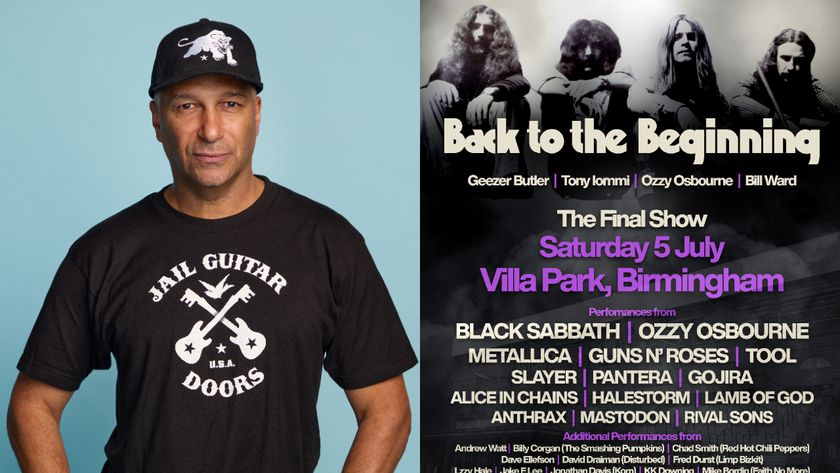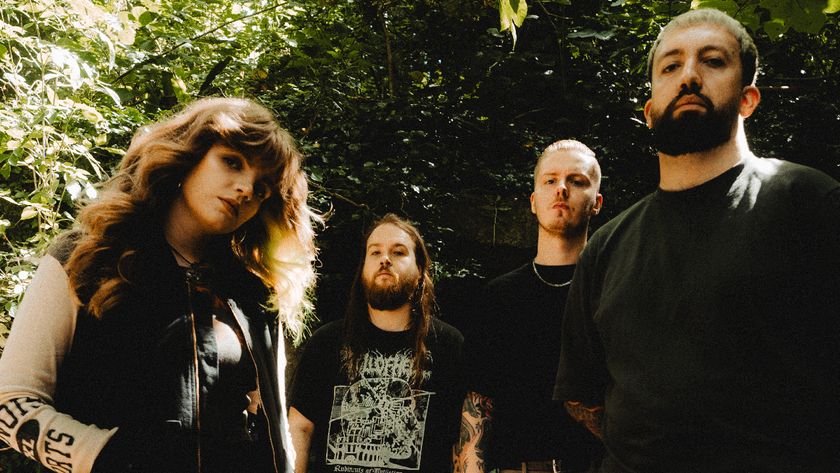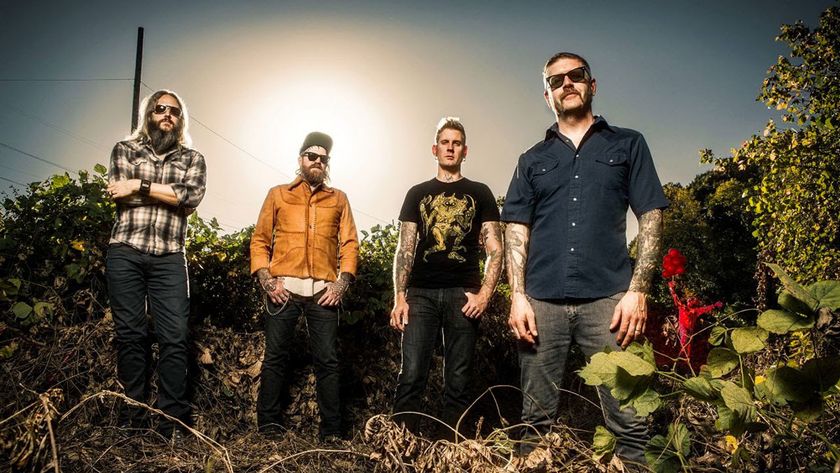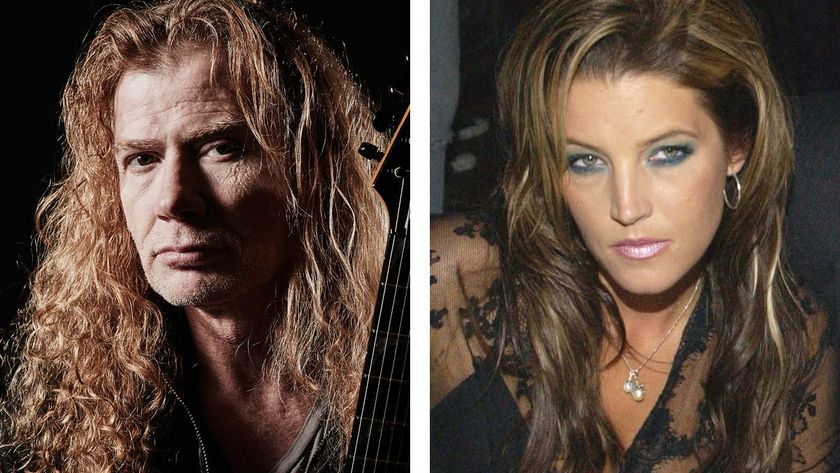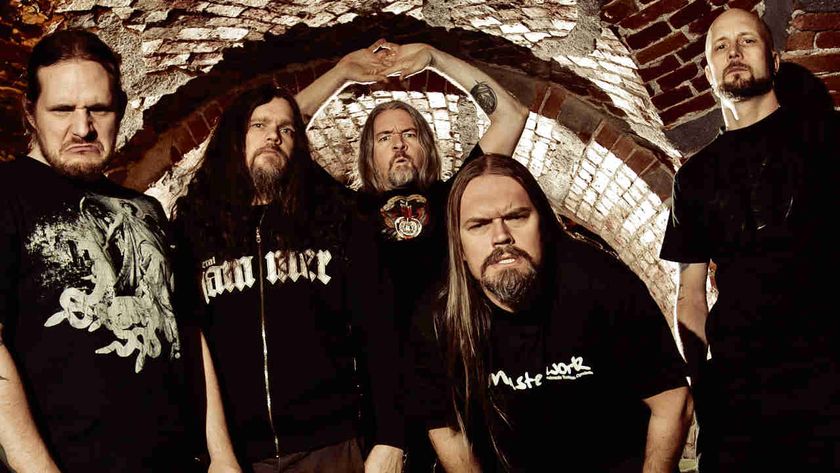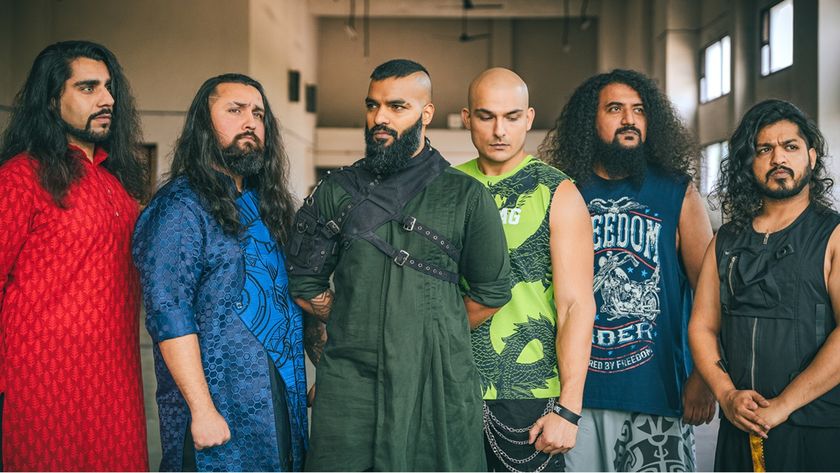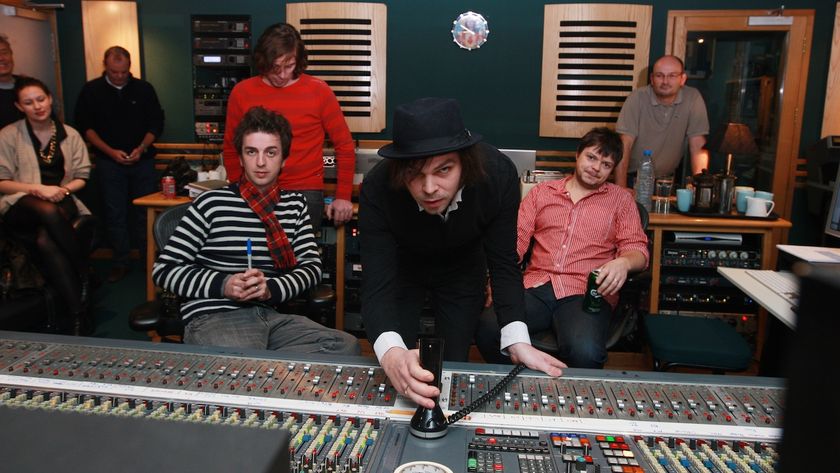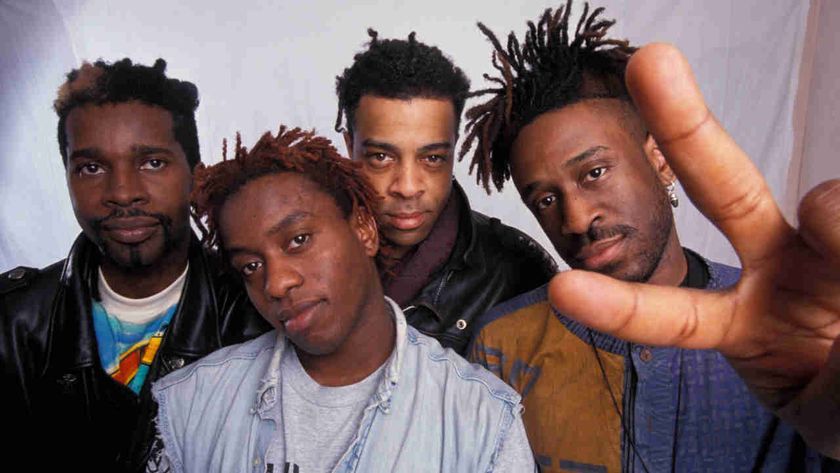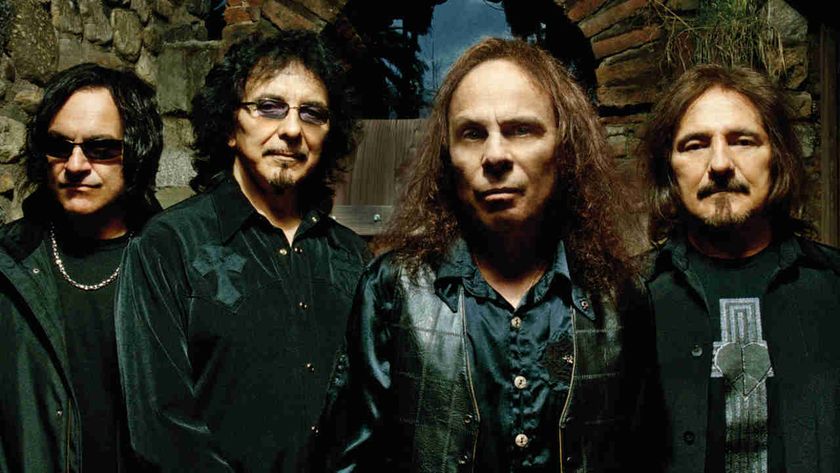Exactly what makes somebody a guitar hero has fluctuated throughout the history of metal. During the the 1980s, you earned the term through commercial success, on-stage showmanship and technical acumen. Then nu metal turned the notion on its head, eschewing focus on the fretboard in favour of percussive force. Nowadays, with metal more underground and split into countless subgenres, it’s a complicated label, often haphazardly used.
The idea of the guitar hero shouldn’t die a death, however. To make a case for the term and the fact that it’s still very much relevant, we've compiled a list of next-generation players who deserve to be celebrated. You won’t find old gods Slash or James Hetfield here – these are the modern metal guitar heroes that today’s audiences need to know.

Tim Henson and Scott LePage: Polyphia
You don’t go insanely viral as frequently as these two have without being shit-hot at your instrument. With Polyphia, Tim Henson and Scott LePage are the freshest voices in guitar-centric progressive rock music. Rather than simply shredding and showing off, the pair use mind-boggling chops to build distinct, infectious melodies, often over R&B-inspired drumming. They’ve been annoying purists for almost as long as they’ve been playing, but they deserve the mass attention they’ve earned.
Craig Gowans and Steven Jones: Bleed From Within
Bleed From Within’s high-energy groove metal may sound like primal caveman shit upon first listen. However, guitarists Craig Gowans and Steven Jones are unsung dynamos on six strings. During a track like breakthrough anthem The End Of All We Know, the pair weave between hefty chord work, finger-testing leads and lightning-fast tapping as if it’s nothing. Add in the fact that Jones also sings the band’s melodic vocals and you have no choice but to be awed by the talent on show.
Sam Vallen: Caligula’s Horse
In the game of marrying technicality with pure, heart-swelling soul, Sam Vallen is unrivalled among metal players. The guitarist for progressive darlings Caligula’s Horse is a professionally trained musician unafraid to show off his skills, yet his 1,000mph shreds always fit the melody of the song and never feel shoehorned in. When you’re playing this flashily – somehow meshing tapping, sweep picking and whammy bar bends together – and have live crowds singing along to your solo, you’re a generational talent.
Manuel Gardner Fernandes: Unprocessed
The singer/guitarist of German prog metal band Unprocessed once got cyberbullied on Instagram because people assumed he was speeding up video footage of his playing. He wasn’t, by the way – he’s just that good. And not only do his fingers move faster than a supercar, but the melodies they’re coming out with can range from dreamy serenades to invigorating metal. When you catch him onstage and see he’s also got can’t-look-away charisma, you start to wonder what Manuel can’t do.
Debbie Gough and Erhan Alman: Heriot
Heriot haven’t even released an album yet and people are already hailing their guitar duo as one to watch. Together, Erman Alman and Debbie Gough (who also doubles up on vocals) have perfected a distinct style of industrial metalcore, able to rise from ominous notes to squealing noise or a nasty-as-fuck riff. With their tone also being identifiable and incessantly loud, any fan can catch just a second of their stuff and go, “Oh, yeah, that’s a Heriot song.”
Diamond Rowe and Josh Fore: Tetrarch
Given it’s a genre more allegiant to simplistic chord work than high-speed soloing, nu metal’s rarely associated with guitar heroism in the way that thrash or death metal are. Diamond Rowe and Josh Fore of newcomers Tetrarch, however, are enjoying an underground reputation for excellence on their axes. Not only can they play the most hulking of riffs, but they can make it look effortless, with Josh singing while Diamond carries a magnetic on-stage presence. They’re not shredders, but they’re remarkable.
Phil Pendergast and Ben Hutcherson: Khemmis
The dual singer/guitarists of Khemmis are everything you could ever want from classic metal frontmen. The pair are both powerhouse vocalists, while their playing flaunts the heaviness and theatricality inherent to the genre. On latest album Deceiver, they harmonise with a tastefulness few can match, play lead-heavy riffs that’ll give you whiplash and, of course, solo so fast that it’s like the fretboard’s on fire. The New Wave Of British Heavy Metal is alive and well in the States thanks to these two.
Serena Cherry and Liam Phelan: Svalbard
No one would ever call either of Svalbard’s frontpeople wild shredders, but what makes Serena and Liam so special is their tone. Despite the Bristolians largely belonging in the blackened hardcore space, there’s a luminescent, shimmering quality to the way their riffs sound – even when they’re blasting out chords as loudly as they can. Serena uses the same tone in solo project Noctule, making her a rarity among up-and-coming metal players in that she has a sound that’s uniquely hers.
Sammy Urwin: Employed To Serve
The rock star is increasingly seen as passé but, through his on-stage energy, Employed To Serve’s Sammy Urwin is keeping that confidence alive. Although Justine Jones is the lead singer of the metalcore crew, it’s often Sammy ordering their audiences to move – then he backs up the bravado by smoothly darting from riffs to pinch harmonics and solos. His playing’s a halfway house between excitement and noise, making it even easier to mosh like a mad thing when he commands us to.
Angus Neyra: Urne
Urne are a rising band frequently lauded for the strength of their riffs. Given that Angus Neyra is the sole guitarist of the power trio, that speaks volumes about his prowess. The Londoner’s playing spans from heavy sludge to uptempo thrash metal sprints, and he frequently switches from chords to fast-fingered, upper-fretboard melodies. With Urne’s stock rapidly growing, and new album A Feast On Sorrow only going to be a catalyst, expect to see Angus in many more lists like this soon.
Mike Sullivan: Russian Circles
Russian Circles formed in 2004, so putting Mike Sullivan here tests the boundaries of “modern” players. However, the Chicagoan has such a fresh perspective on his instrument that it’s criminal he’s not discussed more. He’s the sole guitarist of these post-metal idols and relies heavily on looper pedals, making their songs swiftly escalate into walls of riffing. If he screws up just one note, the next several minutes are fucked, yet he never does. How can such inventiveness and perfection go uncelebrated?




